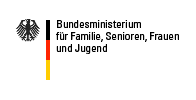Legislation - Gender aspects
Legislation - Gender aspects
- Male norm: legislation and regulations have historically long been geared to the realities of a masculine way of life. This becomes clear even at the level of language, where only male persons are referred to. But it is also present in, for instance, social security law, in which a hidden guiding principle dominates, which makes lifelong full-time employment into the norm. Many women, and increasingly many men, no longer comply with this norm. If mistakes are to be avoided here, Gender must be taken into account.
- Hidden discrimination: legislation is often worded in a gender neutral way today. But it impacts on a reality in which gender-specific differences apply. If these are not taken into account, this often results in indirect discrimination, i.e. actual discrimination against women of men in spite of neutral wording of legislation.
- Language: legal language creates norms. Therefore it is important that men and women are expressly referred to in legislation. This is obligatory at federal level but also expedient from an objective point of view.
- Existing situation: when legislation is in preparation, the different lives of women and men should be taken into account, in order to be able to create an efficient controlling tool. In this regard it is especially important to recognise direct and indirect discrimination and to identify needs which correspond to the diversity of today’s day-to-day decisions.
Further information and literature:
Here you can find information on Gender Impact Assessment as part of the legislative process.
Federal Ministry for Family Affairs, Senior Citizens, Women and Youth (BMFSFJ): Report by the Federal Government on the Impact of the Act Regulating the Legal Situation of Prostitutes (Prostitution Act) (2007).
erstellt von Administrator
—
zuletzt verändert:
02.01.2010 20:07





